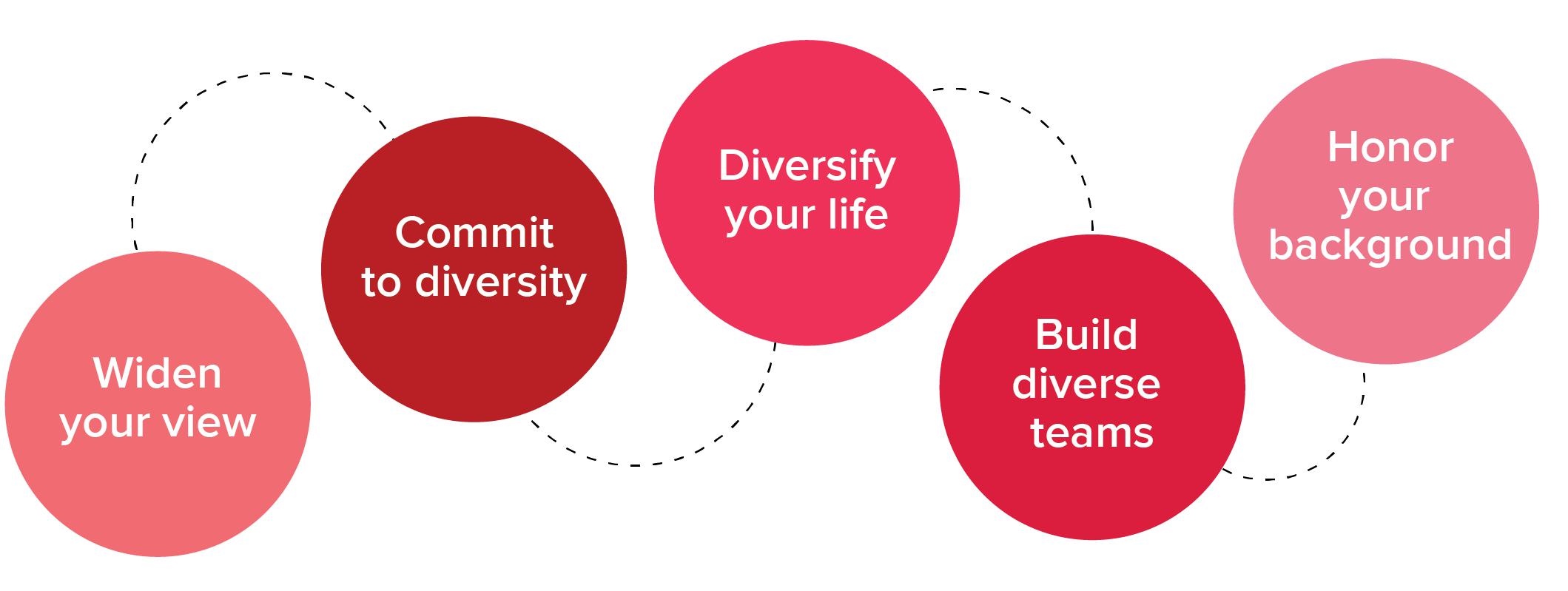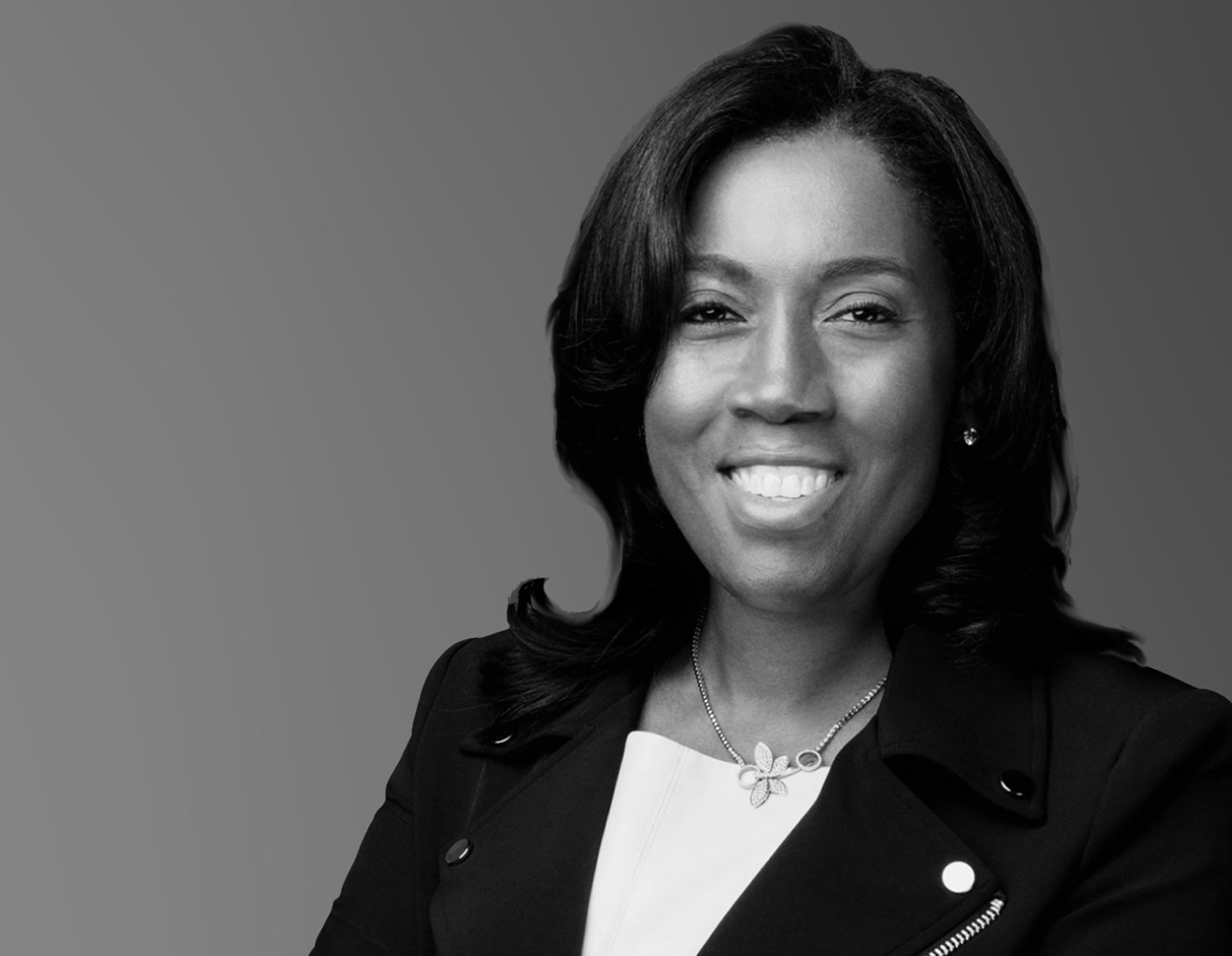Interviewed by Kevin O’Neill
Q&A with Catherine Smith
Catherine Smith is changing how leaders think about diversity: by being an example. As Catherine says: "Brilliant people change the view from their window. They don't constantly look at the same thing."
Her story of resilience, hard work, and achievement had humble beginnings — as a Black female growing up in a Jewish U.S. town. From there, she broke through to become vice president at Motorola, then the global leader of legal and human resource functions at Brightstar – where she wore many hats as executive vice president, chief administrative officer, general counsel, and secretary.
Catherine is currently Evoque’s general counsel, chief administrative officer, and corporate secretary, having recently joined the company on the cusp of explosive growth to help drive the corporate culture and long-term success. Catherine, who speaks often on panels and at conferences about how organizations can support diversity of thought, is also on Tilson Technology’s board of directors. Catherine’s perspectives have been featured in publications like Modern Counsel and Leaders Magazine.
The diverse business perspective and dose of humanity Catherine brings to the global technology and telecommunications stage, helps her break down barriers as a successful Black female executive.
Below, Acertitude co-founder and managing partner, Kevin O’Neill, chats with Catherine about her techniques to drive organizational change, what’s fueled her success, and why diversity of thought should be in every leader’s thoughts.

1. Widen your view
Kevin: Catherine, it’s been an absolute pleasure to watch you thrive over the years, my friend. I’m excited to dive into a topic that I know is close to your heart. Why is embracing and harnessing diversity so important?
Catherine: When you limit your view, you limit your ability to achieve. The reverse is also true — a team comprised of diverse people is open to new thoughts and fresh ideas. Diversity is about perspective. Everyone has a different viewpoint on the world, molded by their own experiences. Brilliant people are open to new perspectives; they step outside their own house and look around.
Brilliant people are open to new perspectives.
I grew up having to think about differences. As a Black girl in a predominantly Jewish town, I was often the only person like me. I learned at an early age that adapting to a variety of settings was necessary. Being "outnumbered" didn't intimidate me. Later, I learned how to use this experience to become a better leader. It wasn’t always easy growing up, but it was worthwhile.
One of the biggest — and most common — challenges I face in business is other people putting their issues on my shoulders. When you’re the only representative of a certain group or perspective, people come to you. As a leader, figure out how to articulate which of those issues are yours to deal with, whose troubles belong with you, and where you can say, “No, someone else is better positioned to tackle that one.” Decide when and how to get involved, taking care to step in when you can act out of your unique experience; it's your authenticity that allows you to guide and advise others, not simply tokenism.
2. Commit to diversity
Kevin: Diversity is top of mind for many CEOs. How can leaders make concrete commitments today regarding diversity initiatives tomorrow?
Catherine: Commitment should come out of real thought and feeling. Oftentimes, my role is to give people permission to relax, take time to understand, and become comfortable questioning themselves and asking questions of other people. That said, if you don't make this pivot to diversity quickly, you'll get left behind. I believe diverse perspectives are the difference between being a failing enterprise and a thriving one.
I believe diverse perspectives are the difference between being a failing enterprise and a thriving one.
Business leaders, ask yourselves what you’re trying to accomplish. How will an investment in diversity impact how your business’s place in the world economy? Can our investment be measured through repeatable, sustainable, predictable, reliable progress? Commitment should come from a real belief in your organization’s ability to enact change. Diversity isn’t just about sending out a memo or counting heads.
3. Diversify your life
Kevin: What can leaders do right now to drive change and get their DEI initiatives started?
Catherine: Happy to help tackle answering this. So, there are some ideas I’d very much love to share with our leadership peers about strategies that I’ve seen work well first-hand. I hope others can take steps to implement them.
First, an initiative in the workplace is no use if you go home with the same blind spots. Use this opportunity to gain new perspectives beyond work. If you believe in something, then build something that lasts — do something in the community, create real job opportunities. These practical initiatives don’t happen overnight; they take time.
If you believe in something, then build something that lasts —do something in the community, create real job opportunities. These practical initiatives don’t happen overnight; they take time.
Second, support equal opportunity purposefully. Identify the reasons why diversity will better your leadership and your business. Ask yourself if this is something you’re doing because everyone else is or to fill a diversity quota. If that's the case, your DEI initiatives probably won't get traction.
Third, surround yourself with diverse people. Ensure the people around you — especially those who have your ear — believe in diversity of thought. Like-mindedness in this regard creates the right atmosphere for change. Actively seek out candidates that offer a different perspective. Form a hiring team that cares about this as much as you do to avoid cultural bias. And don’t stop after one hire — this is about creating a cultural shift. It can't just be that qualifier; it has to be more than that. You're there to see how people fit together. Can they lead a team? Can they help others understand and empathize? Will they keep each other accountable?
I believe the purpose of diversity is to gather differing thoughts and authentic experiences to make a company better – and in the process, impact society as a whole. There are a lot of talented, sought-after people out there who can enhance your organization — all you have to do is look for them.
4. Build diverse teams
Kevin: We frequently work with leaders who want to enhance their team’s diversity of thought. How can they find diverse executives to lead their teams successfully?
Catherine: Brilliant leaders surround themselves with brilliant people with varying perspectives. Much of my success has come from carefully selecting people on my team. I’ve taken the time to understand each person’s strengths and weaknesses. I’ve used my position of influence to try to make better decisions for the company and the individuals on my team, but I’ve also followed my instincts. I’ve gravitated to people who are focused learners, people who can parse through a lot of debris and focus on what's important, people who can explain their views boldly. I think that's something every leader can do.
Brilliance begins with openness. I believe that brilliant people understand the importance of knowing what they don't know. They recognize they need to supplement what they know with others’ diverse insights and perspectives. That means asking others for help, learning from others in the room, seeking out diversity of thought for each idea, and acknowledging people along the way.
By staying focused on my team, I stay real. As a leader, I think it's important for my team to see the real me, what I’m going through, what I’m celebrating, and everything in between. In return, I try to establish transparent relationships in which employees feel comfortable approaching me and asking for what they need — so their diverse perspectives are never stifled.
5. Honor your background
Kevin: What experiences led you to become the brilliant leader you are today?
Catherine: Education was the catalyst. My parents were first-generation college graduates, and learning was an absolute priority growing up. They would move us to neighborhoods with the best public schools, and if the public schools weren't doing enough, they would send us to private schools. My parents had high expectations, and that allowed me to aim high for myself. It wasn’t a question of whether or not I would go to college, it was a matter of where. I grew up thinking I could do anything that I wanted to do, and my education was one of the tools that would get me there.
In addition to education, relationships were critical. I worked at Motorola for 14 years, and a customer relationship I developed there led me to Brightstar. Once you form relationships, people begin to see how you think, how you focus on what's critical to them, how you look after them — and opportunities open up as a result. For example, my role at Brightstar expanded because I saw a need and offered to fill it. Again, this was due to relationships I’d built; I felt comfortable reaching out when I saw I could be of help because I had a strong relationship with my boss.
I've had the opportunity to lead a team of over 100 people and advise and guide CEOs in their big-picture thinking. Throughout my career, I’ve learned in depth how businesses run. From my parents' influence, I’ve become a constant student of everything from profitability to negotiation. In my experience, to be a good advisor you have to sit back and pay attention to what's going on in the room. I notice people's facial expressions, when they are confused or when the point has hit the mark. You have to listen, but you also have to know when to interject and stand up for what's right.
Brilliance does not exist without courage
Brilliance does not exist without courage. To me, brilliant leaders are the ones who stay humble, guiding those around them from a place of humility while still acting confidently and decisively. They always strive to curate diversity of thought and learn from these diverse perspectives — ultimately allowing their businesses to achieve more.
Defining brilliance with Catherine
Purpose is... | what we are meant to do. |
Leadership is... | the gift of motivating people to reach a desired end. |
Brilliant leaders are... | humble and are striving to learn more. |
Success is... | a process, not a destination. |
I perform at my best... | I trust my instincts. |
Never miss insights
Stay in the know with our thought leadership



